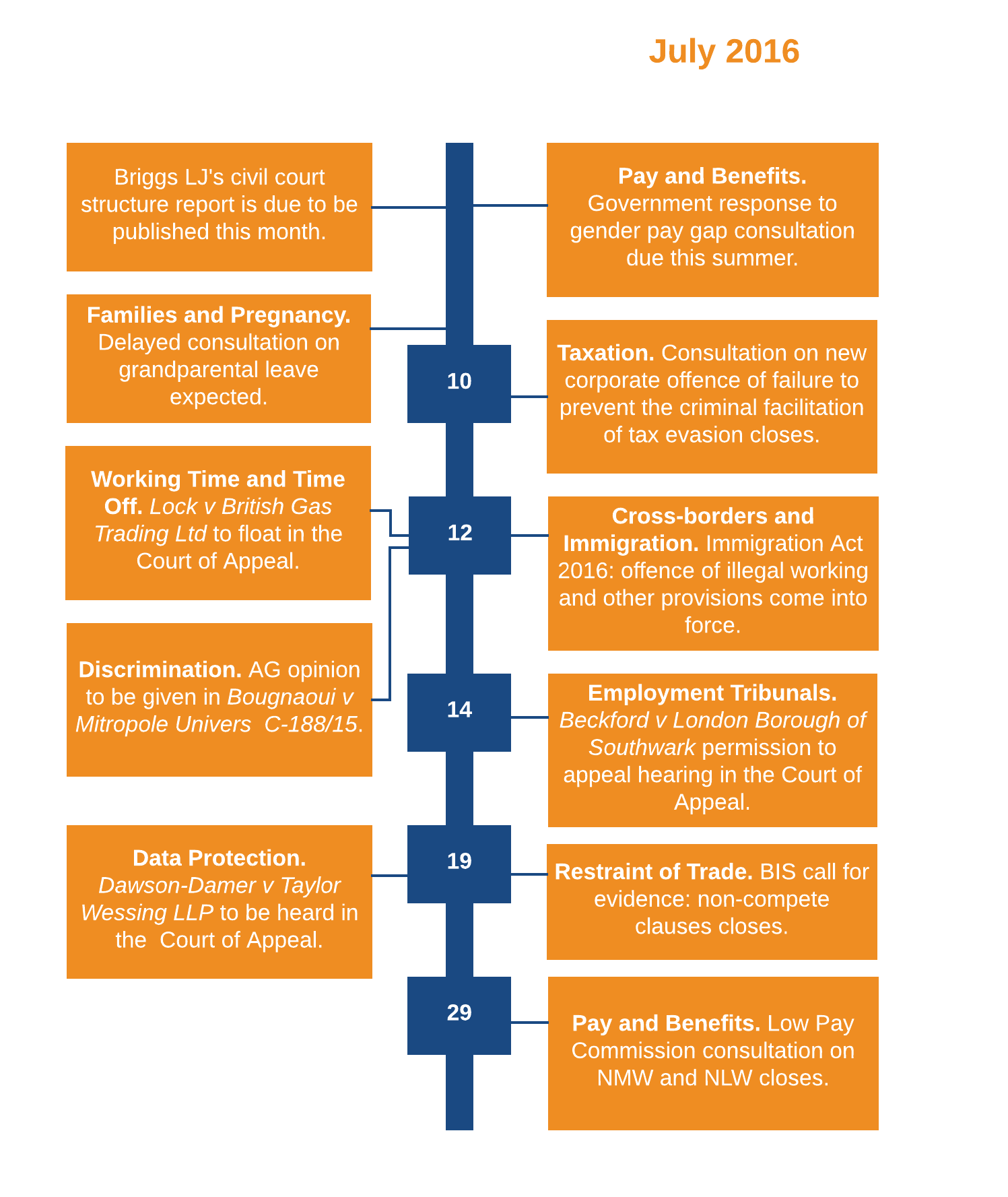For anyone who inexplicably missed it, this month’s big news is Brexit, following the UK’s vote by a narrow majority to leave the EU. Although nothing can be known yet about the UK’s future trading relationship with the EU, we have briefly set out some of the possible implications for employment law, including some thoughts on the EEA option. Readers may also be interested in our In-House blog, UK votes out: après nous, les dèluge, which contains initial views on the immediate aftermath, from practitioners across a wide range of areas.
In the first religious discrimination case to reach the ECJ, the Advocate General gave an opinion that a dress code banning Muslim headscarves was justified by the employer’s policy of neutrality. This is discussed by two of our bloggers (below).
The Supreme Court upheld a tribunal order for reinstatement on restricted duties, as this reflected the status quo prior to dismissal, and has held that mistreatment of migrant workers because of their vulnerable immigration status was not race discrimination.
The Court of Appeal held that the disclosure of a rape acquittal in an enhanced criminal records certificate was not a breach of human rights and that a discrimination claim can be brought directly against a work placement provider in the ET. In Asda Stores Ltd v Brierley, the court held that the tribunal has no power to stay equal pay claims in order to transfer them to the High Court. The substantive hearing of the case began on 20 June 2016 at the tribunal in Manchester and was listed for 10 days.
In two cases on the Acas Code of Practice on Disciplinary and Grievance Procedures, the EAT has held that the Code does not apply to ill-health dismissals where there is no culpable conduct by the employee, nor does it apply to SOSR dismissals based on a breakdown in the working relationship despite suggestions in two previous cases that it could. It has also held that the rules on “protected conversations” render the existence, not merely the content, of settlement negotiations inadmissible in unfair dismissal cases, and cannot be waived.
The House of Commons Justice Committee published its review into Court and Tribunal Fees, suggesting that the level of employment tribunal fees should be “substantially reduced”, but the outcome of a separate review by the Ministry of Justice into fees has still not been published despite a claim by one civil servant that it was awaiting ministerial sign-off in October last year. In other news, the Scotland employment tribunal user group has considered the devolution of Scottish ETs, and HMCTS has announced plans to launch a new online database of ET decisions in Autumn 2016.
A new report has made detailed proposals for better UK whistleblower protection, echoing some of the recommendations made by the Whistleblowing Commission in 2013. An employee who unlawfully took client data with him when moving jobs has been prosecuted and fined £300 under the Data Protection Act . And in the first case of its kind the High Court has ordered a gangmaster to compensate trafficked workers kept in modern slavery.
Meanwhile, the Welsh First Minister announced plans to repeal parts of the Trade Union Act 2016 in so far as they apply to devolved public services in Wales, although the UK government maintains that Wales has no power to do this. This could conceivably lead to another visit to the Supreme Court over the scope of the devolved powers. The last one was a win for Wales.
Blog
In our blog, Crowley Woodford considered compliance with the senior managers regime, Shireen Shaikh discussed two recent cases concerning the lawfulness of banning Muslim headscarves at work, with further commentary by Declan O’Dempsey suggesting that discrimination law is in danger of becoming a two-tier system which pays insufficient regard to religious belief as part of a person’s self-perception and dignity. Jillian Paton and Mark Tarran examined the potential legal pitfalls of employers telling their employees how to vote and Ishaani Shrivastava looked at how to prepare an effective List of Issues for an ET hearing.
Next month
Key developments to look out for in July 2016.

For recent and forthcoming developments, don’t forget What to expect in employment law, Case tracker and Legislation Tracker.



